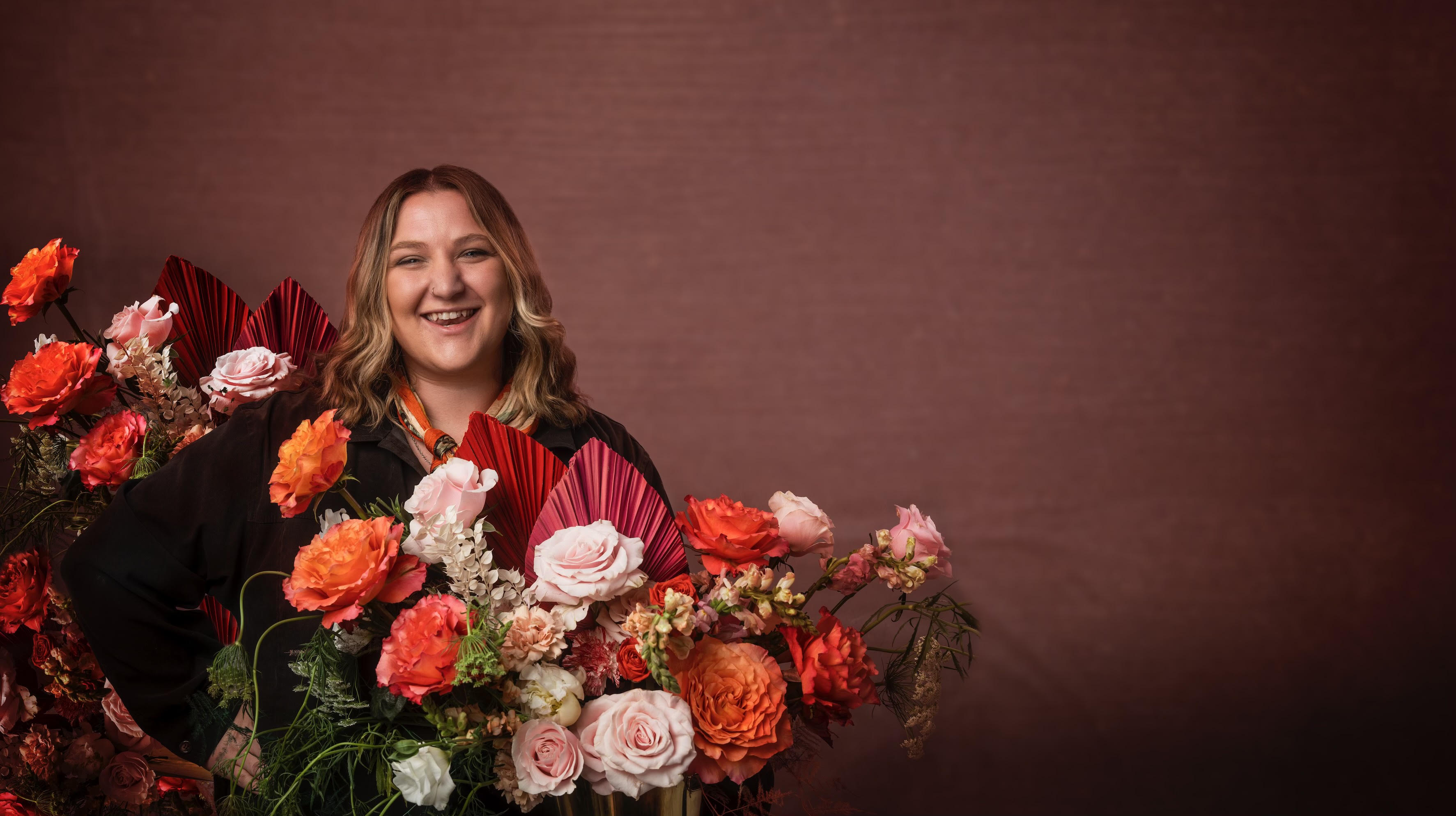As a child, Olivia D’Amico whiled away the hours weaving flower crowns, playing outside and discovering the beauty of nature. D’Amico, now 30, pursued a career as an artist, studying graphic design at the State College of Florida and becoming a professional graphic designer. The combination of working a 9 to 5 graphic design job while juggling various side hustles led D’Amico and friend and fellow graphic designer Elizabeth Taylor to explore other artistic ventures that allowed for greater flexibility and creativity.
An idea began to bloom, and in 2016, the pair founded Kinspoke, a floral and art installation company. D’Amico and Taylor coined the term “Kinspoke,” meant to evoke the ways that art uses storytelling to strengthen intergenerational bonds. “In the beginning, we weren’t focused on flowers,” D’Amico adds, “and we wanted a name that gave us the flexibility to be fluid, work through different mediums and have whatever future we wanted.”
Their first project was a large women’s conference installation piece that incorporated greenery and flowers as a medium. “We fell in love with flowers as a medium, viewing them as works of art,” says D’Amico.
This open perspective has allowed the company to bounce between art installations, florist services and educational workshops without missing a beat. One of D’Amico’s favorite installations, displayed at a conference for 2,500 people, was a 1967 Mustang convertible overflowing with flowers. Another was a ceiling installation with disco balls and crepe paper accompanied by matching florals. Both installations were featured at conferences in Bradenton. Kinspoke creates custom displays for weddings, parties and private and public events. On a smaller scale, the company creates art and floral installations inside Atria Cafe in Lakewood Ranch and Oscura in Bradenton for the enjoyment of patrons.
Like traditional florists, Kinspoke offers a weekly flower menu of bouquets and arrangements with pre order options for holidays. However, D’Amico doesn’t just want people to look at the flowers; she also wants them to participate in the creation process. On a weekly basis at locations like Waterside Place and the Friendly City Flea, Kinspoke hosts pop-up bloom bars, where guests can choose from a variety of seasonal dried and fresh flowers to create their own bouquets. “We want to encourage people to be playful and to touch the flowers because people can be afraid of handling them,” says D’Amico. According to her, despite the flowers’ psychological and emotional benefits, many people don’t feel like they deserve to have them in their home.
As an artist, she’s also observed that creative projects can seem daunting to the average person, and believes that flowers can help bridge the gap between everyday objects and museum masterpieces. At Kinspoke’s workshops, D’Amico shares her years of experience with an introduction to design lesson, in which students learn about color theory, placement, the rule of thirds and other basic design principles. She enjoys watching as couples, families with young children and people of all ages explore floral design together. “I love teaching,” she adds “and workshops help us show people that flowers are an accessible medium and encourage them to bring them into their homes and play with them.”
While large-scale installations can cost up to $10,000, D’Amico ensures that workshops and bloom bars offer affordable options for all budding florists. Kinspoke also partners with Youth for Christ and The 180 House to create installations and art programs. “Beauty is a human right, and we want to make the creative process accessible for underestimated communities,” says D’Amico.
With current business partners Linda Bradshaw, Lillian Teford and Katelyn Glover, D’Amico is grateful for the way that flowers have allowed Kinspoke to walk the community through all of life’s phases, from joyous weddings to celebrations of life itself. “Because flowers are universal, everyone has a story or memory attached to their favorite flower,” she says, “and they help ground us to where we come from.”









